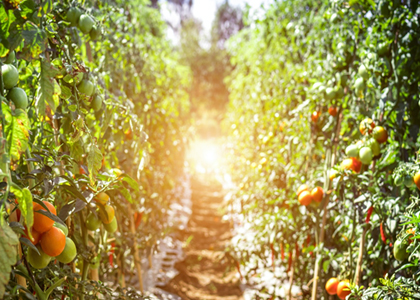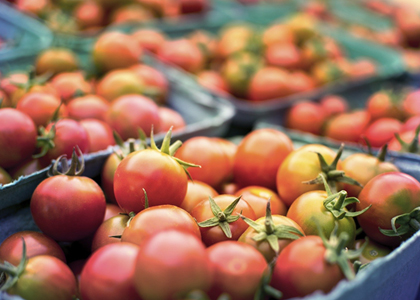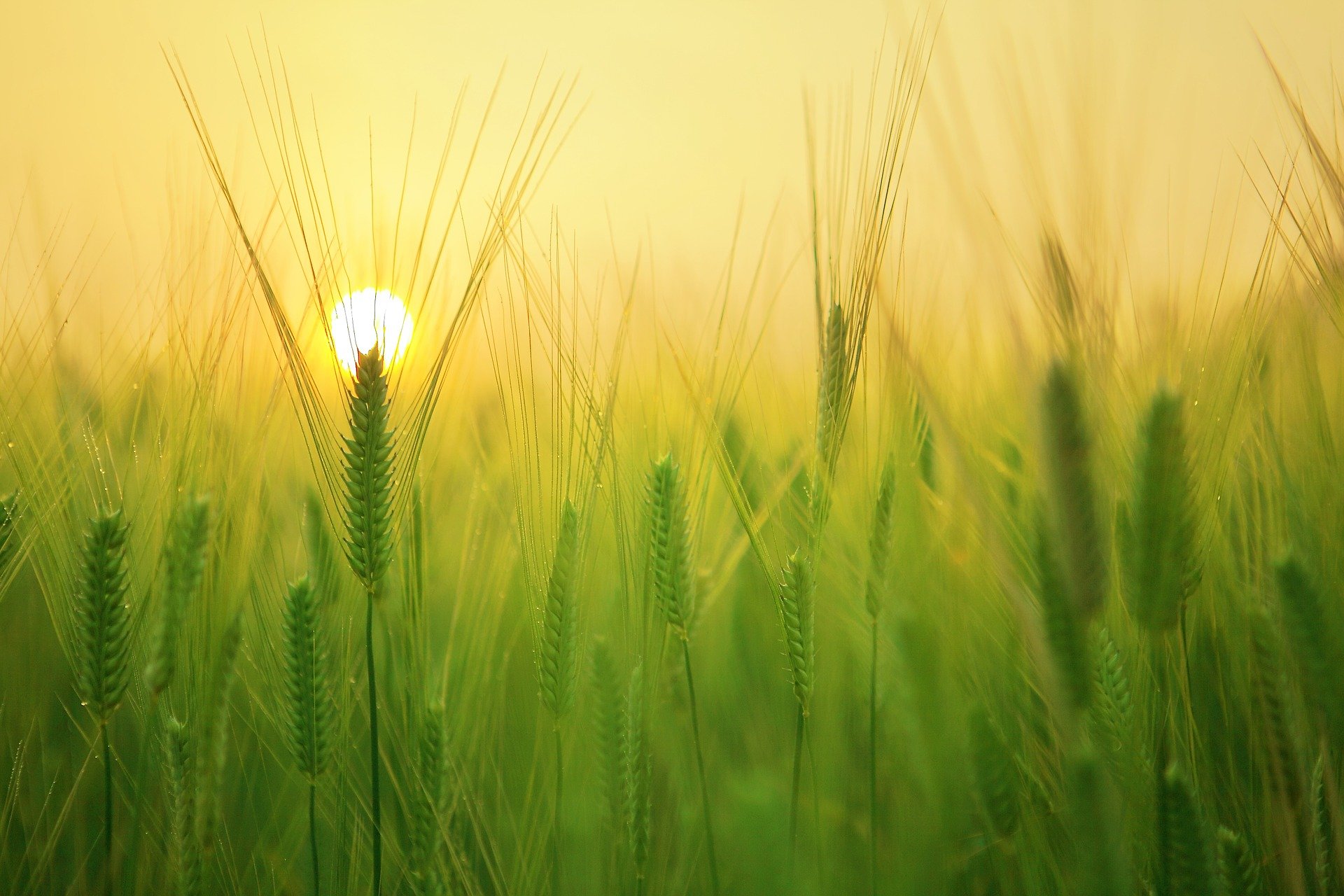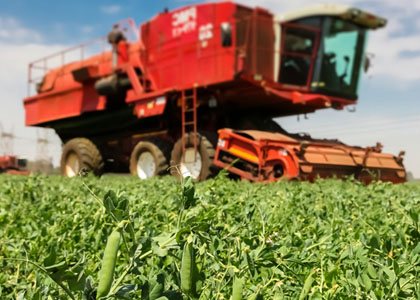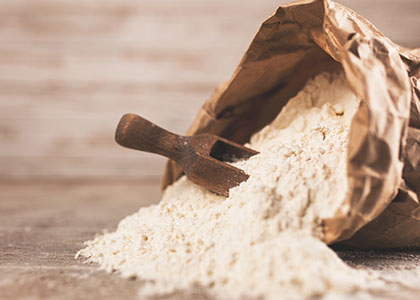Home / Blog / What does the next decade have in store for Saudi’s Agriculture Industry?
Article Summary
The Kingdom of Saudi Arabia is cognizant of the fact that it must diversify its economy away from oil. In this regard, the government has introduced measures to encourage diversification across its agricultural produce while staying environmentally conscious. There are also measures underway to use less water-intensive agricultural methods.
The country is looking towards sustainable agricultural practices in the future. They want to become a key player in the larger, global effort to meet the food demands of an increasingly hungry world. Combined with a growing awareness of the impending global water crisis, the country has abandoned its campaign for self-sufficiency – drastically reducing support for crops like wheat and alfalfa, that consume large amounts of water while increasing support for organic farming and vegetables.
For a more environmentally friendly and sustainable agricultural growth, the country is encouraging the production of specific foods at home, as well as, agricultural investments abroad, so that food goods can be imported back into the country.
One of the answers to providing high-quality agricultural produce sustainably in the future is through vertical farming. The country, like others around the world, is planning to embrace the future agriculture 4.0 revolution, with science and technology as its driver.
Index
Current agricultural standing
Away from oil
Future trends in agriculture
Trend 1: A different approach to forage grains
Trend 2: More greenhouses for more growth
Trend 3: Agriculture abroad
Trend 4: A turn towards desert agriculture and seawater farming
Trend 5: Vertical and urban farming
Trend 6: Advances in water consumption
Trend 7: Increased use of technology
Trend 8: Incorporating cross-industry technologies
——
Agricultural Market Overview
As of 2018, the Saudi Arabia Agriculture Market was valued at USD 9.507 million. By 2024, it is estimated to reach USD 12.16 million, at an annual growth rate of 4.53%, from 2019 to 2024.
As the largest market for agriculture in the GCC region, with one of the fastest-growing populations, the demands on the agriculture sector are high, owing to the following reasons:
- Changing consumption patterns of consumers and increasing awareness about food origin and sources
- The migration of rural communities to urban areas
- The increased presence of superstores, hypermarkets, and a growing restaurant and F&B market
- Forward-thinking
With growing national demand, the patterns of water consumption in agriculture over the next decade will become a critical area of importance. The country is facing looming water depletion in its underground aquifers.
- Diversifying water sources
Cognizant of this fact, Saudi Arabia has introduced measures to diversify to less water-intensive agricultural produce within the country, as well as introduced the initiative for Saudi agricultural investments abroad.
- Proven successes
The Saudi landscape hardly looks promising for farming, but agriculture is a big business that has previously proven to be successful. From Hail in the north, the valleys near Taif in the west, to the terraced hillsides of the southwest, the country turned green due to a three-generation, nation-wide perseverance to reach self-sufficiency in wheat, poultry, and potatoes.
Current Agricultural Standing
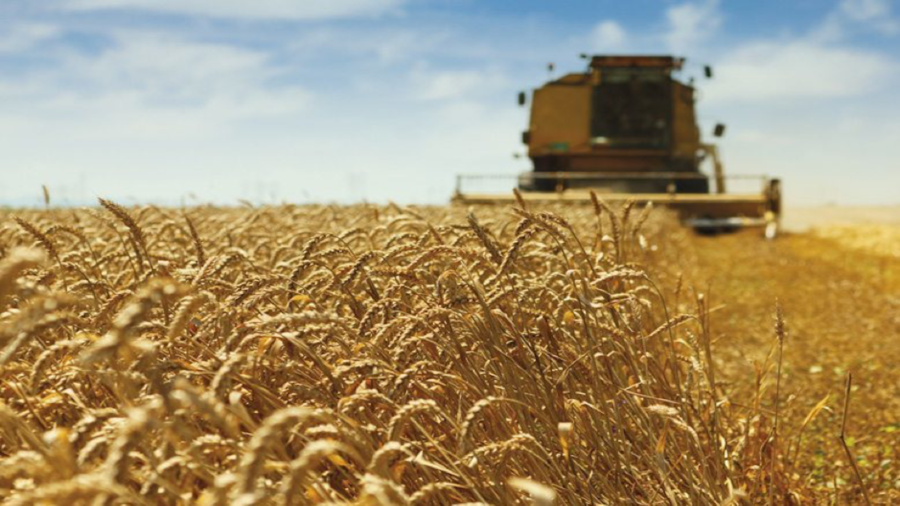
- Agriculture grows in the share of GDP
While the country still has a heavy dependence on petroleum revenues, industry and agriculture are beginning to account for an increased share in economic activity. According to 2018 statistics from the World Bank, agriculture contributed 2.2% of GDP, employing an estimated 6.7% of the labor force, and contributed USD 7.45 billion to the economy.
- Exports
Owing to nature and geographical conditions within the country, only irrigated crops are grown. Agriculture in Saudi is currently largely focused on the export of dates, dairy products, eggs, fish, poultry, fruits, vegetables, and flowers to markets around the world.
- More technical and digital tech
Buoyed by government policies, the private sector is looking to introduce more technical and digital advancements to Saudi agriculture in the future. These measures will reduce water wastage in transport and usage, as well as use existing fertile land and resources to maximum advantage.
- Sustainable practices
Saudi Arabia is looking towards sustainable agricultural practices in the future, becoming a key player in the larger, global effort to meet the food demands of an increasingly hungry world.
Away from Oil
As one of the top economies in the world, with the second-largest petroleum reserves and the fifth-largest gas reserves, Saudi Arabia’s GDP is largely oil-dependent. However, under the leadership of His Highness Sheikh Mohammad bin Salman, the forward-thinking kingdom is embracing growth and progression across all key industries.
Tied in with the country’s Vision 2030, Saudi Arabia plans to reduce its dependence on oil, and diversify its economy, while developing public service sectors such as health, education, infrastructure, recreation, and tourism. Within this plan, also lie the blueprints of agricultural sustainability and growth in the next decade. Let’s look at some of the trends we’re expecting to see within Saudi’s agricultural industry.
Trend 1: A Different Approach to Forage Grains
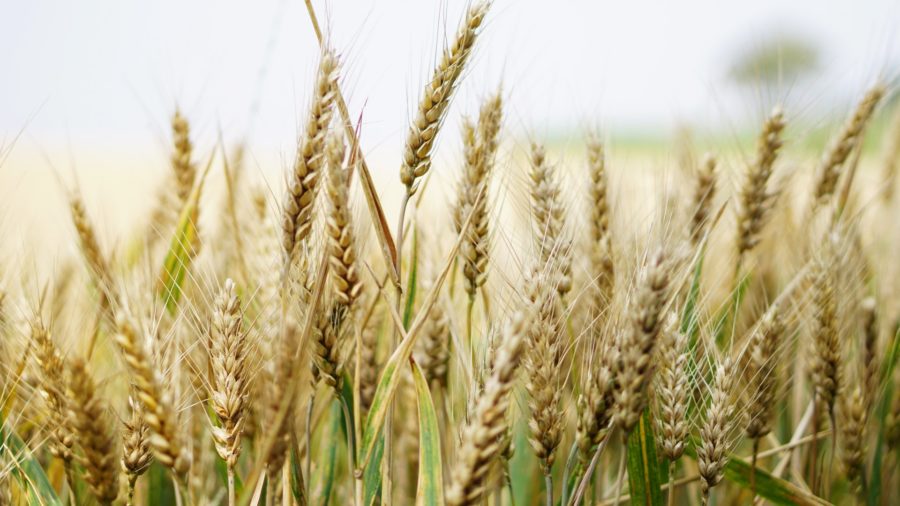
Given the arid climate of the region, Saudi Arabia is largely dependent on extensive agricultural systems for irrigation. While the country now enjoys a fairly reliable calendar of rain, it averages at 100m and is not enough to sustain the agricultural demands of the country.
Forage Grains:
- Wheat and Alfalfa:
While the kingdom’s most dramatic agricultural accomplishment was achieving self-sufficiency in wheat at the end of the 1980s, it instituted measures to reduce agricultural production of the crop from 2007 onwards. Because of the crop’s heavy demands on water, wheat exports have ceased, and production was reduced by 12.5% a year in 2018.
However, since 2018, the government has reintroduced support for wheat production in a bid to reduce the dependence of livestock farmers on alfalfa (the main green fodder crop). On account of unusually good rains in August 2019, about 700,000 tons of wheat were harvested from about 87,000 hectares. This new cycle of wheat production is seen to supplement local demand in the coming years, helping to ease off a bit of the pressure on forage imports.
Moreover, even with alfalfa fodder production, the government is looking at a 40% reduction in local produce in the next few years and is instead encouraging farmers to switch to high-protein manufactured feeds for livestock instead.
- Barley:
To meet the forage shortfall, Saudi Arabia remains one of the world’s leading importer of barley, but the country is working towards decreasing imports from 35% in 2015/16 to 30% by 2024/25.
The country is expected to use more balanced feed rations and rely less on barley for its feed grains. To encourage this reduction in imports in the future, the government is providing farmers with smarter seeds, irrigation water subsidies, and support through tax revisions and cuts.
To reduce consumption of alfalfa and barley for animal feed, of which the country is already the world’s biggest importer, the government is going to continue offering subsidies to dairy farmers and the owners of sheep and goats to encourage them to switch to, and stay with, a high-protein manufactured feed.
Trend 2: More Greenhouses for more Growth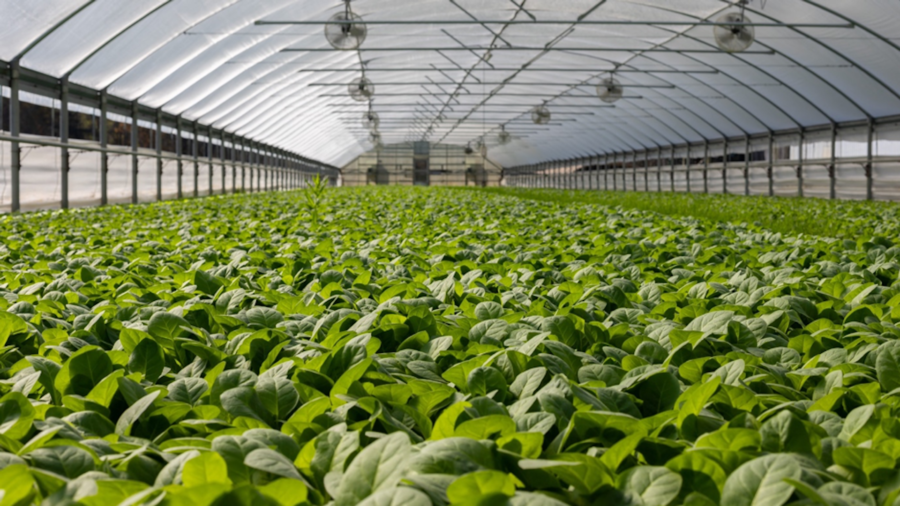
Vegetable production is shifting from open fields, where water evaporates, to greenhouses. For this purpose, according to the U.S.-Saudi Arabia Business Council, the government has earmarked more than USD 28 billion worth of agricultural investment projects through 2020. The shift also included changing farming preferences to a mix of crops and products that consume less freshwater. This trend in farming practices is slated to continue in the future.
Trend 3: Agriculture abroad
For a more environmentally-friendly and sustainable agricultural growth in the future, and in light of the strong domestic demand for food and feed, the country is encouraging Saudi agricultural investments abroad, and for products to then be imported back to the KSA.
This initiative targets rice particularly, but also yellow maize, soybeans, wheat, barley, and green forage. Rice imports from Saudi-owned farms abroad in 2019/2020 were estimated at 1.3 million tons. To meet the local demand, rice will continue to be imported from abroad – the only shift being in the source of production.
Trend 4: A turn towards Desert Agriculture and Seawater Farming
By 2050, farmers the world over needs to be producing 70% more food to meet the demands of an increased global population. Partaking in this, Saudi Arabia, too, will need to tackle its food crisis by turning its deserts and sea into food production facilities.
KAUST: The King Abdullah University for Science and Technology (KAUST) in Saudi Arabia is at the forefront of research on desert agriculture. The Desert Agriculture Initiative at KAUST is working at tackling the wider suite of difficult challenges posed by agriculture in a desert environment, by working on biotic research that includes:
- Genome engineering technologies to manipulate biological systems and plant growth and development.
- Growth regulators that improve plants or respond to adverse conditions.
- Plant hormones that shape shoot-and-root architecture according to available nutrients.
Cutting-edge research at KAUST is seeking to drive Saudi Arabia’s agriculture in the next decade by:
- Identifying microbes associated with plants growing in extreme heat, drought, and salt conditions.
- Identifying molecular mechanisms that enable plants to adapt to extreme environmental conditions induced by microbes.
- Using appropriate factors to enhance plant stress tolerance and help increase crop food production in a sustainable way.
Given that harvest losses by drought, salt, and heat amount to approximately 60% of total productivity, the kingdom is seeking to introduce seeds with higher abiotic stress tolerance in agricultural production cycles in the future to facilitate crop improvement and higher yields.
The resulting findings from KAUST’s research have translated into studier seed and fertilizer strains that are made accessible to farmers and agriculturalists for future growth cycles. Equally, the government is actively undertaking information-dissemination campaigns to ensure that farmers of the future have the correct support they need.
Trend 5: Vertical and Urban Farming
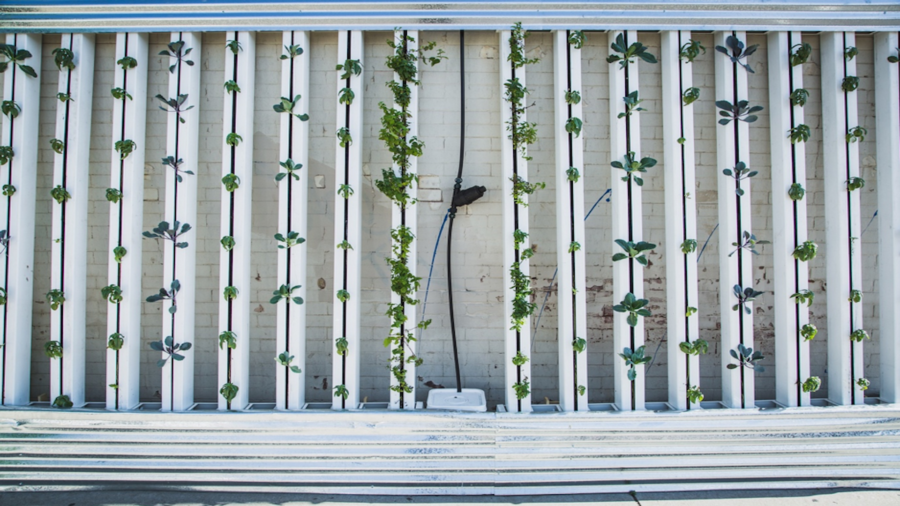
One of the answers to providing high-quality agricultural produce sustainably for the future in Saudi Arabia is through vertical farming.
In a country where water and arable land are scarce, producing food in vertically-stacked layers is an agricultural trend gaining serious ground.
Boosted productivity: Associated with urban farming, vertical farming uses soil, hydroponic, or aeroponic growing methods. The process uses 95% less water, less fertilizer and nutritional supplements, and little to no pesticides while boosting productivity.
There are a number of important characteristics that make vertical farms suitable for Saudi Arabia’s agricultural future:
- Limited freshwater resources: Saudi Arabia has easy access to seawater.
- Population trends: vertical farms can be erected in urban centers, taking very little physical space.
- Limitless renewable energy resources (sunlight): large solar panels can be attached to the roof of a vertical farm or installed at a separate complex located near a farm.
As vertical farms have the potential to produce a substantial amount of food for local communities, the kingdom too will be seen incorporating this growing international agricultural trend into its farming practices.
Trend 6: Advances in Water Consumption
The next decade sees the kingdom adopting subtle changes in its agricultural policies. Combined with a growing awareness of the impending global water crisis, the country has abandoned its campaign for self-sufficiency – drastically reducing support for crops like wheat and alfalfa, that consume large amounts of water while increasing support for organic farming and vegetables for human consumption.
The generous subsidies that previously existed for wheat, which enabled the country to become the world’s sixth-largest exporter, are being phased out, and instead routed towards encouraging more vegetable and fruit produce.
The agriculture ministry is, instead, emphasizing:
- Scientific water management
- Water-conserving drip irrigation,
- An end to the local production of crops for cattle feed
- As well as “food security” by developing farm resources abroad
The kingdom is also heavily investing in the desalination of seawater, and reuse and cleaning of used water. The country is currently the largest producer of desalinated water in the world, manufacturing nearly 3 million cubic meters of water daily. Employing a holistic approach to water management in the country, the government also plans to:
- Issue more tenders to water authorities to assess and repair the damage to their networks.
- Reduce water losses.
- Encourage the use of more time-saving, technologically-powered orchard equipment.
- Encourage more efficient on-farm irrigation systems with:
- water pumping stations from on-site reservoirs
- sturdier pipes
- drips and localized networks
- efficient sprinklers
- reel hoses
- center-pivots
- AI integrated, drop-wise sprinkling systems
- irrigation spindles
- spray lines
- irrigation towers
Trend 7: Increased use of Technology
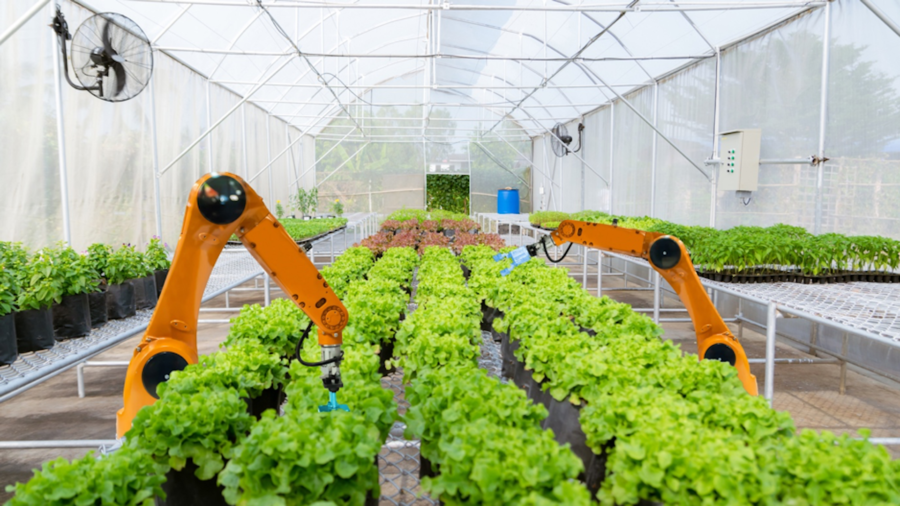
The other trend the kingdom is interested in incorporating into agriculture in the future is far greater usage of technologies that can improve the efficiency, sustainability, and energy consumption within the entire ecosystem – all the way from seed/plant health, to water management.
- Digitalization of water
The digitalization of water can deliver huge efficiencies in agricultural management, in the same way, that it is transforming other industries. Sensors in water pipes can pinpoint the site of leaks, helping to speed up repairs. Smart meters can provide valuable data to manage supply and demand. Investing in membrane technology can reduce the cost and increase the efficiency of desalination plants.
- Smarter seeds and grains
The world saw a surge in the use of smart seeds from the 1960s through 2004. However, the rate of yield from efficiency grains the world over are dropping. Saudi Arabia, like other countries of the world, is planning to ride the future agriculture 4.0 revolution as green away as possible, with science and technology at its heart. The country, in conjunction with the research and development coming out of KAUST, is planning to look at both the demand side and the value chain/supply side of the food-scarcity equation, using technology to meet the food needs of its people.
- Modern farms and agricultural operations
The country plans to incorporate modern farms that will work differently – primarily because of advancements in technology – to include smart sensors, devices, machines, and information technology. The future of agriculture in the kingdom will include the use of sophisticated technologies such as robots, temperature and moisture sensors, aerial images, and GPS technologies. The inclusion of these advancements will be more profitable, efficient, safer, and environmentally friendly.
- Smart use of fertilizer:
Agriculture will no longer have to depend on applying water, fertilizer, and pesticide across entire fields. With the help of technology, farmers will be using minimal quantities or even completely remove them from the supply chain.
- More arid land brought to cultivation
With these technological advancements, another future trend in agriculture in the kingdom will be to bring more arid land into cultivation to try and grow crops in previously under-utilized areas.
- Increased connectivity with international startups
With a global increase in agricultural-technology startups, Saudi Arabia will also try and access the growing wealth and resources of the international community, to try and access leading trends with more agricultural-idea crossovers.
Trend 8: Incorporating Cross-Industry Technologies
In line with the increased incorporation of digital tech in Saudi agriculture in the future, farmers will also be using:
- Internet of Things (IoT): IoT will allow correlations of structured and unstructured data to provide insights into agricultural food production in the future by applying machine learning to agricultural-management systems.
- Automation of skills and workforce: As the rural workforce shrinks by moving to urban centers, new technologies will be incorporated to ease farming processes and workload.
- Data-driven farming: Weather, types of seeds, soil quality, probability of diseases, historical data, marketplace trends, and prices will all be data-driven, thereby driving agriculture intelligently.
Increased use of drone technology is also expected to give agriculture in Saudi Arabia a high-tech makeover. Six ways drones will be used in crop cycles in the future include:
- Soil and field analysis
- Planting
- Crop spraying
- Crop monitoring
- Irrigation
- Plant health assessments
To find out more about future trends in agriculture in Saudi Arabia, visit the Agri page website by clicking here. Agri is one of Saudi Arabia’s leading suppliers of agricultural products and is one of the oldest and best-known agricultural trading houses in the region. The company has also been a pioneer in providing agricultural solutions across the country, enabling growth and prosperity for farmers.



